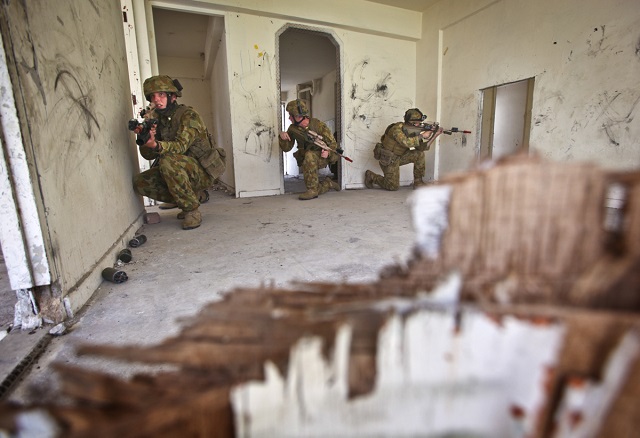
In an author’s response to a critique of one’s work, perhaps it might seem unusual to start by agreeing with the criticiser! In his review of my monograph
Forging Australian Land Power: A Primer, Dr John Blaxland, from the ANU’S SDSC,
has implied that I’ve drunk from the Army’s Kool-Aid in regards to my view of the Defence of Australia (DOA) construct. While ‘drunk’ is perhaps too strong, I admit that I’ve certainly sipped. Blaxland rightly points out that much good came out of DOA and he justifiably lists achievements that still resonate today.
But much was also wrong with DOA and that part of its legacy mustn’t be forgotten because the implications for the ongoing security of Australia are profound. DOA reduced land power to the second tier because its drafters under-appreciated its importance in the human activity called war. Such neglect is the road to the next
Task Force Smith, those undertrained, underarmed, and poorly-led US soldiers who were overrun during the opening days of the Korean War. Thus, while DOA did accomplish many things, and I appreciate Blaxland’s reference to them, it also would have placed at risk the lives of good men and women, as well as the nation’s security, if the unexpected had occurred.
Blaxland also points out that in recent years the Australian Army has done all that has been asked of it. I agree, but only because not much has been asked of it. All of its most successful operations have been non-warfighting, while the Army’s contribution to the wars in Iraq and Afghanistan—much less successful operations in my opinion—was as a small boutique force (to use Blaxland’s words) with limited objectives. Perhaps Australia need not prepare for a more serious war-fighting role and perhaps it will receive an adequate warning time sufficient for building a more potent land force, but insufficient warning time is historically too common and the consequence potentially too grave in the future to be content with such a hope.
In fact, I believe Australia’s threat environment is changing and not for the better. My primer deliberately didn’t identify any threats in order to avoid readers being distracted by the detail of various contingencies. I wanted the monograph to set out how to plan an appropriate land force (and a joint force) that can succeed no matter the eventuality. That’s the importance of the seven truths. But it does seem to me that we’re entering a more hostile phase of existence that will reverse the progress in human nature that
Stephen Pinker writes of. I fear that Australia isn’t ready, both physically and mentally, for such an eventuality. Certainly the Army isn’t.
The last of Blaxland’s points that I would like to comment on is my choice of the expression ‘compartmentalisation’ rather than his suggestion of ‘delusional thinking’. The latter is certainly more dramatic, and possibly more correct. However, what I was trying to say was that Army in particular and Defence in general resort to compartmentalised thinking because this allows the organisation to avoid dealing with the contradictions of its actions. For example, by employing compartmentalisation Defence was able to resolve the buying of the LHDs without first settling on a maritime strategy, a small matter that’s still being worked out. Acquisition and strategic direction were isolated from each other, a compartmentalisation that eased the making of the purchase decision.
I thank Blaxland for taking the time to critique my monograph. I look forward to further engagement with those who consider the nation’s security.
 Print This Post
Print This Post